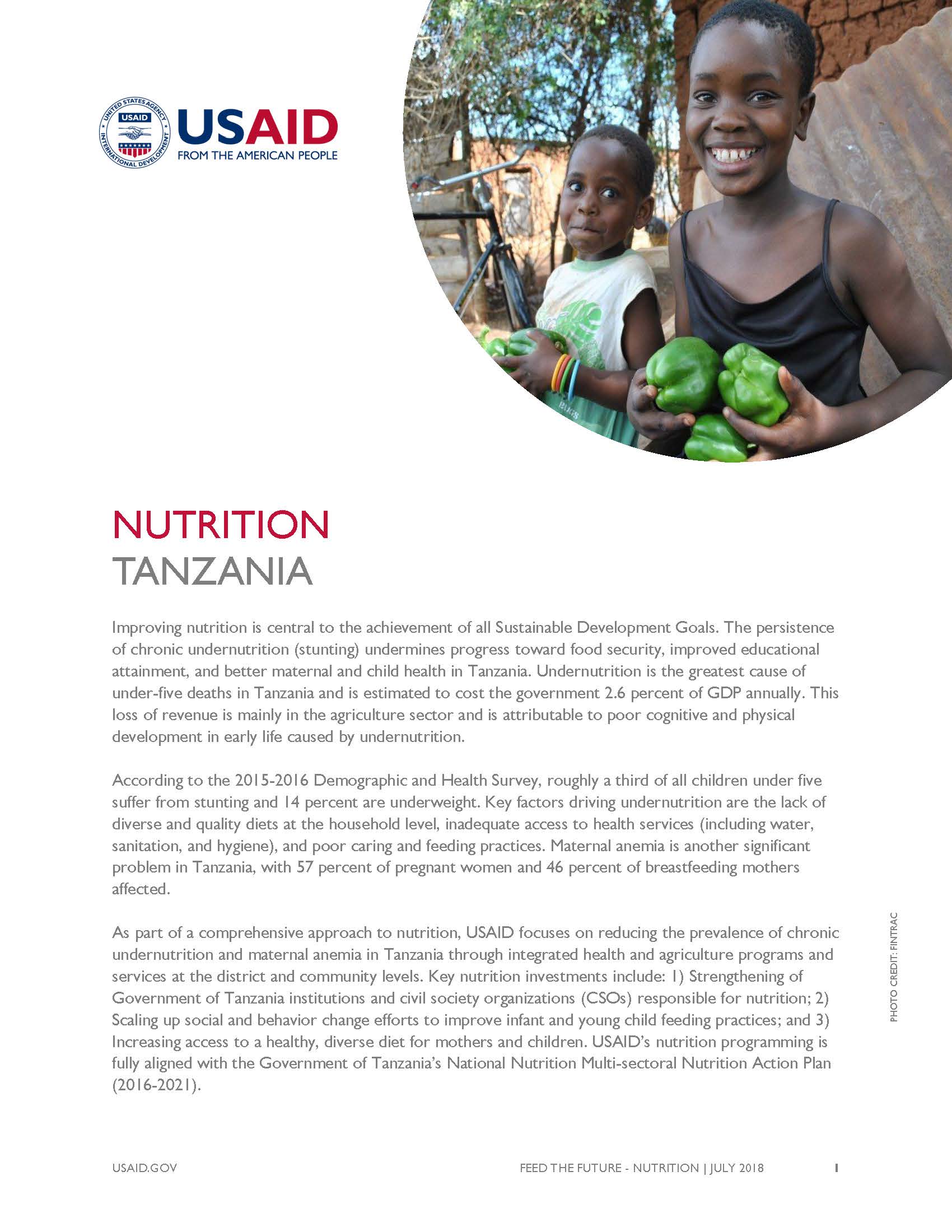Speeches Shim
According to the Tanzania 2015-2016 Demographic and Health Survey, roughly a third of all children in the country under age five suffer from stunting and 14 percent are underweight. Key factors driving undernutrition are the lack of diverse and quality diets at the household level, inadequate access to health services (including water, sanitation, and hygiene), and poor caring and feeding practices. Maternal anemia is another significant problem in Tanzania, with 57 percent of pregnant women and 46 percent of breastfeeding mothers affected.
As part of a comprehensive approach to nutrition, USAID focuses on reducing the prevalence of chronic undernutrition and maternal anemia in Tanzania through integrated health and agriculture programs and services at the district and community levels. Key nutrition investments include: 1) Strengthening of Government of Tanzania institutions and civil society organizations (CSOs) responsible for nutrition; 2) Scaling up social and behavior change efforts to improve infant and young child feeding practices; and 3) Increasing access to a healthy, diverse diet for mothers and children. USAID’s nutrition programming is fully aligned with the Government of Tanzania’s National Nutrition Multisectoral Nutrition Action Plan (2016-2021).


Comment
Make a general inquiry or suggest an improvement.